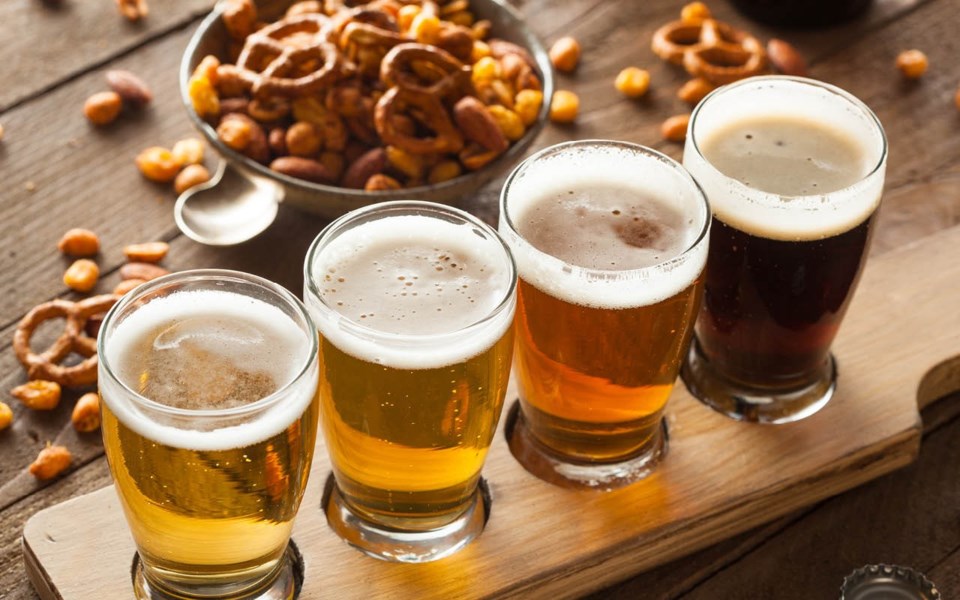We know that climate change is affecting global weather patterns in a way that will require us to adjust everything from coastal habitations to agricultural expectations. We've heard plenty about future food security as a result of regional weather shifts, but another dimension has recently emerged: potential effects on indulgence industries, things not strictly necessary for survival but which affect our collective quality of life—like wine and beer.
Granted, a shortage of alcoholic beverages is unimportant compared to life-threatening climate impacts such as floods and fires, but it will affect social aspects of human life and commerce, as well as—dare I say—coping mechanisms for many.
With both industries studying the future impacts of climate change on production and pricing, one might even come to say—paraphrasing a famous Whistler band name, which itself echoes a universal party/pub lament—"It stole my beer."
Research indeed suggests trouble brewing on the beer front, with extreme heatwaves and droughts increasingly damaging the global barley crop and leading to dramatic price spikes.
One study employed various models to examine the effects of extreme weather on barley yields over the next 80 years, and its impact on beer supply and price. Under current carbon-emission scenarios, beer consumption fell by about a third in Ireland, Belgium and the Czech Republic, a quarter in the U.K., 14 per cent in the U.S., nine per cent in China (now the world's largest beer consumer), and seven per cent in Australia. More ominously, under best-case scenarios of deep and rapid emission reductions, beer consumption in Ireland, Belgium and the Czech Republic would still fall between nine and 13 per cent, with similar drops in Canada and Germany.
Climate is also challenging the quality and yield of hops. Most U.S. hops are grown in Washington, Oregon and Idaho, states increasingly threatened by drought. But the problem isn't restricted to North America: in 2017, Europe experienced one of the worst hop crops in decades; with supply falling far short of demand, prices soared.
Producers everywhere may be searching for a new hops-growing Shangri-la, but moving large-scale production isn't easy—especially in the midst of a craft-beer revolution that puts increased pressure on supply for boutique, geographically restricted strains. Dr. Joshua Fisher, a climate scientist at NASA, believes we've reached a tipping point for hops in the Pacific Northwest with respect to summer rainfall and accepted norms in plant growth. Ongoing increases in hop usage will make weather dependency even higher in the future.
The same can be said for wine-making grapes—with both the plants in general, and varietals in particular, having similarly specific climate demands. Currently, all grapes grow between the 30th and 50th parallels on either side of the equator, but global warming is shifting this range. In the Northern Hemisphere, grape-growing is creeping northward into the Netherlands and Scandinavia, which are already making decent wine, as well as into novel terroirs such as India, China, and Tibet.
Climate change has forced the wine industry to evolve more in the past two decades than over the previous 500 years, with examples like the 2017 California wildfires that destroyed 101, 000 hectares in Napa, and extreme freezes in France than have caused major crop failures in regions such as Burgundy. By 2069, it's projected, the area may be too warm to produce "Burgundy" at all, relying instead on grapes more like North American pinot, or simply producing blends.
As more winemakers utilize blends to compensate for bad years, reliance on manmade production technologies may bring an end to the concept of vintages. Already scientists are experimenting with making wine in a lab from molecular constituents that will obviate the need for grapes. Cork is a limited resource that may also soon see its end: the oak tree from whose bark it derives grows only in southern Europe and North Africa, where climates are rapidly changing.
Given wine's resilience through the vicissitudes of human history, we can assume that it will still be around in 50 years, even as it becomes harder to produce. Already wineries are following the craft-beer model of focusing equally on the experiential side of drinking, setting up tasting rooms in urban centres and experimenting with virtual-reality tours and tastings that will eliminate the need to visit wine country.
Climate change may not eliminate wine and beer, but you can bet things are going to get a little weird.
Leslie Anthony is a science/environment writer and author who holds a doctorate in connecting the dots.




